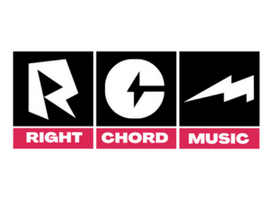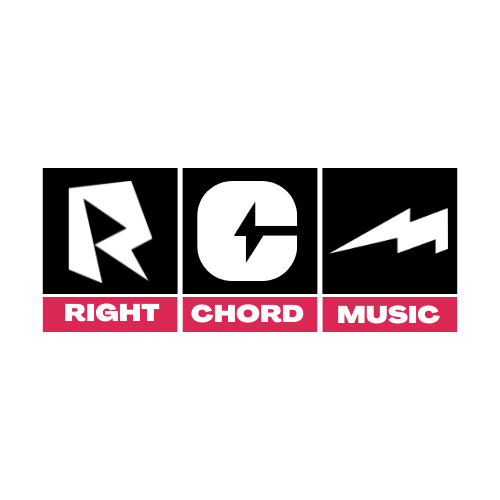I’ve been running the Right Chord Music blog since 2010. In this article, I give you a peek behind the curtain, how does it work? What are the realities of being a blogger and what do blogs mean for independent musicians?
How is it set up?
Right Chord Music is published on WordPress, back in 2010 it was the best solution. Submissions to our blog are made via a separate website which is built and hosted on Wix. Wix makes design a doddle but isn’t so good at SEO. Ideally, we would have one solution, but this way we can get the best of both worlds without the need to be a coder. Both sites are linked by a menu click, so it’s easy to navigate between them.
Who reads music blogs anyway?
When you run a music blog, you quickly realise the majority of your visitors are the artists you feature and the fans of those artists. Ok, you might get a few hard-core music obsessives that visit you regardless of the artists, but the majority of your audience are the bands and artists reading their own features. The utopian dream of swathes of music fans seeking you out is sadly just that, a dream. True true music explorers are a minority.
What’s the role of a music blog?
At this level, the role of the music blog review is primarily about affirmation. IE Someone other than your Mum or your Girlfriend thinks your music is great!
Blogs give musicians a quote to use on their press releases, social posts, websites or EPK. Beyond a band’s own press, blogs also show up in Google search, or at least they should.
How do you know if a blog is Google indexed? Go to their page find the name of an artist/track they have reviewed, then search for it on Google and see if it appears, or simply search for the blog in Google and see if it appears.
How many people read my review?
For many unsigned blogs, the scale and volume of readers is relatively small to the websites you visit every day. Here at RCM, we work hard to optimise our SEO and socials to drive website traffic and it continues to grow each year. In the last month, we attracted close to 9,000 page views.
The best thing about a blog review? It stays online and continues to pick up views across its lifetime. Our most viewed artist has picked up in excess of 14,000 views since Google Analytics tracking began in 2013. So don’t think a review is just about the readers that read it on the day of release, it’s not.
At any point in the future when your name pops into somebody’s head for good or bad reasons and they head for Google the review is still only a click away.
What motivates a music blogger?
I can’t speak for others but in my case, it’s a pure passion for music. I don’t like the radio, it doesn’t play the music I love. I set up RCM so I could always be sent incredible new music.
Most days I get up at 5.30am, like any passion you only do it if you care. Us bloggers are immediately out of pocket, the moment we’ve paid for website hosting and a domain name each year, I’m not motivated by money.
Writing a blog provides an excuse to study music more intently. When you write a review, it is likely you will listen to a single 5 or more times, you look at the artwork closely, you read all the bios and visit all the social pages. It’s not often you have a reason to look this closely or intently. After this much focus, great music really does quickly stand out.
How can artists support blogs?
There are a couple of ways you can help us to help you.
Backlinks are important. If we write about your band, and you add our quote to your website with a link to our review, that helps tell Google, we are a trustworthy and authoritative site. That means we are placed higher in Search results, which means more people see us and visit us to read your review.
Share our content on your socials. That helps attract more readers to your own review. Remember the people more likely to read will be those people that know you already. It also promotes our blog to other bands and artists that follow you, and that helps us
Be kind and courteous, a thank you goes a long way. We always remember the artists that take time to reach out and say thank you. If you build a relationship with us, we are much more likely to support you again in the future.
How does a music blog scale?
Content and keywords drive views. Lots of content combined with the right keywords and optimised SEO drive website visitation. But in the case of most unsigned artists, few people are searching for your names on Google. To counter this we also write lots of additional content about music marketing. This content attracts people to the blog, who then go on to discover music while they are on the site.
When I started RCM it was just me, and I quickly realised there was a limit to how much one person can write. I recruited a couple of writers to help. I got lucky, with a writer who wrote for several years for free, it was a good chance to grow her portfolio. But that’s rare, most writers don’t work for free for long.
If you want to scale a music blog you need a team and a submissions process that moves away from personal email. RCM moved to a centralised online submissions database to address this problem. This approach allows us to give freelance writers and partner blogs access to our submissions database. We currently have around 25 writers who can access our submissions.
The net effect is that more music gets reviewed and more reviews mean more visitors to the blog, which is better for everyone.
Who wants to write for free?
When you are a new music blog starting out, it’s easy to write for free. You receive a trickle of emails and you write about the best.
But as your blog grows in popularity your trickle of submissions becomes a torrent. Before we moved to an online submission database we frequently received over 150 submissions a week. Sadly there is no way, one person can ever listen to every track. So you quickly start to miss out on great music, and you can never review enough.
Let’s be clear, nobody gets rich writing music reviews. On RCM our writers charge £6 for a review and keep 100% (we don’t make any money, we’re happy to just receive the content.
Let’s not forget the alternative. You could pay a PR £1,500 and have no guarantees of any press. So paying £6-£10 for 5 guaranteed reviews from a blogger that’s passionate about your music seems like decent value.
Is editorial credibility compromised by paid reviews?
The criticism levelled at blogs that charge for reviews is that editorial credibility is compromised by accepting payment Let’s address that.
Bloggers work hard to build their brand and reputation for sharing great music, and wouldn’t want to risk that. Any track submitted to RCM that is open to paid review must meet certain quality thresholds before being shared with our writers. If the music sounds terrible, if it’s missing a photo or press release or there are broken links it will be immediately deleted.
Music only gets shared on RCM if we love it. Because our writers keep 100% of the fee I have no motivation to let bad music appear on RCM. You can’t just buy your way on to RCM.
I would conclude paid reviews only become unethical when the payment becomes a serious motivator impacting editorial choices or when there is a lack of transparency upfront.
Here is an example, years ago I contacted the NME to review a new band. The NME said they loved the music, but would only review the band if we spent hundreds on advertising! Now that’s unethical.
Similarly, we applied to be featured on Record of The Day. Fifteen years ago, this was seen as a very powerful industry feature. Once again the band was chosen by the editor, but for the feature to run we would need to pay £150. Paid support masquerading as free editorial features certainly crosses the ethical line.
How do blog networks work?
Sadly music PR is riddled with charlatans and scammers it’s no surprise there have been attempts to create alternative models. One of the original alternatives is SubmitHub. Created by Jason Grishkoff (founder of music blog Indie Shuffle) The logic is sound. Bring a load of blogs together and make it easier for artists to access them through one front door.
The challenge facing SubmitHub is not the idea, but the execution. As Ari’s Take observed in their critique of the platform – musicians want coverage, not feedback. Especially when the feedback is often ill-informed and utterly subjective.
This feedback requirement was added by Grishkoff as a way to ensure the promoters actually listen to the music before making blind offers of support. This hints at the real challenge facing SubmitHub.
Is SubmitHub unethical, no of course not! After all, it’s really just the middleman, connecting musicians to blogs and other promoters. But as they have grown it’s become harder to vet and police their members, and sadly some of their promotional partners are unethical.
We experienced this ourselves a few years ago when someone signed up to SubmitHub claiming to be Right Chord Music. They profited from our name and it took several attempts to get them shut down and our blog name removed from the SubmitHub system.
Musosoup the way PAYG PR should be
On the back of SubmitHub comes Musosoup, they have stripped out the feedback and cut to the chase. Yes, you pay £20 to submit, but after that, you only pay for guaranteed blog coverage that you agree to, there is also the option for free only coverage. If in the end, you don’t get any offers of support, your upfront payment is refunded as a token to use on your next campaign. This is pay as you go PR the way it should be.
This model works well for blogs who want a vetted feed of quality music to review and it also works well for musicians. After all would you rather pay £30 for 3 or 4 reviews or pay £500 – £1,000 to a music PR and potentially get nothing?!
Musosoup offer a very transparent and ethical offering and they recently launched their #SustainableCurator campaign to further boost their credentials. But as they continue to scale, the challenge to avoid the scammers and fake promoters that have become the scourge of SubmitHub will remain.
Influencer marketing brings a new set of challenges
SubmitHub and Musosoup now offer musicians the chance to connect to social media influencers. After running the influencer marketing platform ‘Squall’ for a couple of years, we know this brings a whole set of additional challenges. Unfortunately, influencers are used to working with brands, not bands, so immediately their prices are far higher, and they are utterly unsympathetic to the financial realities of unsigned bands.
We recently took the decision to close Squall, concluding that influencers don’t care about music, they care about money, and this isn’t why we created the platform. While running the platform, we would regularly see Squall influencers blindly making offers to every artist that submitted to the platform, regardless of quality or genre. As an ethical platform, this didn’t sit well with us, and I would urge both SubmitHub and Musosoup to closely monitor the quality vs value return from social influencers. It would be easy to be accepting of expensive offers when you are taking a cut from every single one.
The RCM Indie Collective
Right Chord Music recently launched our own aggregation service. The RCM Indie Collective invites musicians to submit once, in return for the chance to be featured on up to 7 different blogs. We’ve deliberately kept the number of blog partners small, to ensure quality. Read about our early successes here.
Here’s our offer:
- Submit once for free to RCM
- Choose to free or paid reviews
- If paid your music is exposed to all our freelance writers and blog partners
- If free, your music is exposed to fewer writers
- Even if you choose paid, you can still pick up free support
Discover more on RCM
- Five reasons why music PR consistently fails unsigned musicians
- Music Promotion: 7 Challenges Facing Independent Artists
- NFTs: The Opportunity For Independent Musicians
Words Mark Knight









